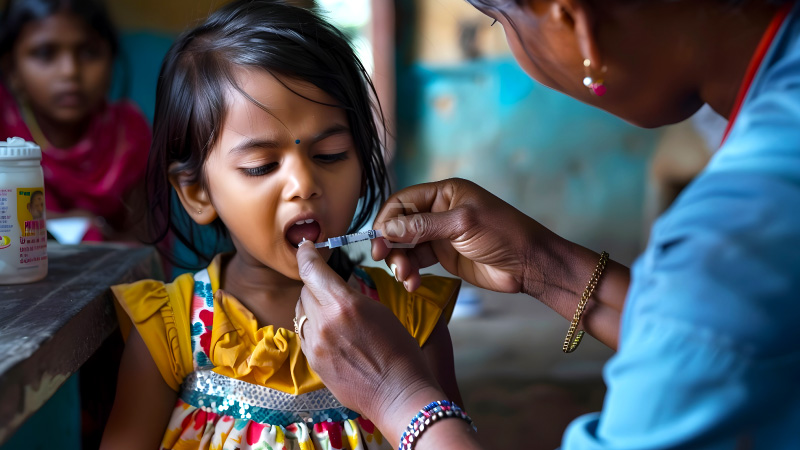- Polio cases rise from 6 in 2023 to 73 in 2024 in Pakistan.
- Conflict in Afghanistan hampers vaccination efforts.
- Urgent need for comprehensive immunisation strategies and international cooperation.
The return of polio to Pakistan and Afghanistan marks a worrying reversal in global health progress. Despite years of dedicated vaccination campaigns, instability in the region, including Taliban-imposed restrictions on health workers and poor sanitation, has allowed the virus to resurface.
Efforts to combat polio must go beyond immunisation, addressing broader health concerns and infrastructure gaps. Experts emphasize the need for provincial-level parity in vaccination coverage, as rates in Pakistan range from 85% in Punjab to just 30% in Balochistan.
Polio’s Comeback: Challenges and the Path to Eradication
Polio’s resurgence in Pakistan and Afghanistan underscores the fragility of global health gains. The ongoing conflict in Afghanistan has created conditions for the virus to spread unchecked, with wild poliovirus cases spilling over into Pakistan. This has been exacerbated by uneven immunisation coverage, with some provinces still lagging far behind.
Health experts like Zulfiqar Bhutta highlight that the eradication effort requires more than vaccines—it needs robust sanitation, stable political environments, and cooperation from local governments. The Taliban, while presenting unique challenges, have previously collaborated on health initiatives such as smallpox vaccination campaigns during negotiated ceasefires, showing potential for dialogue.
The rise in other infectious diseases, including measles and dengue, reflects the broader public health crisis in the region. Without reliable data and functional health systems in Afghanistan, responding to these threats remains a daunting task for global health agencies.
Collaboration between international and regional stakeholders is crucial to combatting polio’s spread. Investing in routine immunisation programs for multiple diseases, enhancing cross-border coordination, and addressing socio-political barriers could pave the way for sustainable health improvements.
The resurgence of polio in Pakistan and Afghanistan serves as a stark reminder that health systems require sustained investment and collaboration. A united global effort is essential to prevent the virus from regaining a foothold and to ensure a healthier future for vulnerable communities.
“It’s a virus that does not want to be eradicated, so give it an inch and it will take a yard.” — Zulfiqar Bhutta



